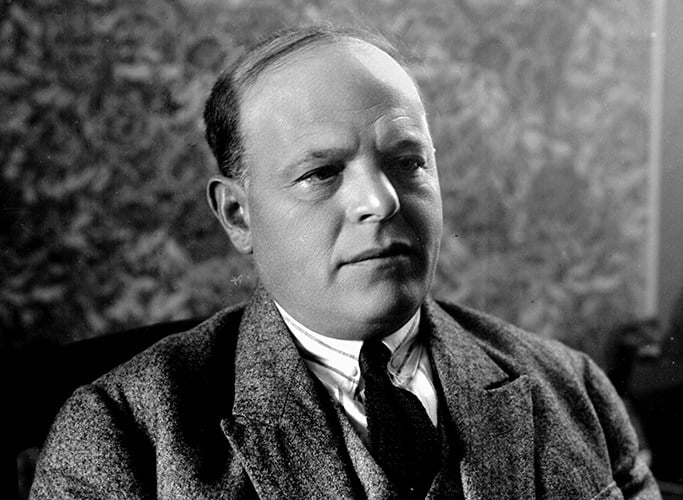Every April in the United States, in celebration of National Poetry Month, many of us pause to read a favorite poem, to be reminded of the power of language to express complex emotions. For Hayim Nahman Bialik, who would eventually be known as Israel’s national poet, the primary emotion needing expression was Zionism, but his lasting impact on Jewish culture comes from his remarkable choice to do so in Hebrew. Before the turn of the twentieth century, Hebrew was strictly a biblical language — no nation’s language and with few people who even imagined it could be. And yet, Bialik was committed to writing in Hebrew, certain it was the foundation upon which Jewish nationalism must be built.
Born in Ukraine in 1873, Bialik was an intellectual prodigy who by age 13 was frequently consulted on matters of Jewish law. At 17, he entered the acclaimed yeshiva at Volozhin where he was drawn to the Jewish Enlightenment movement and joined the secret society Hoveve Tsiyon (Lovers of Zion), which passionately supported the Jewish national idea. A budding poet, Bialik left the yeshiva a year later to join Odessa’s cohort of thinkers at the center of cultural Zionism. There, he found praise after the publication of El Ha-Tzippor (“To the Bird”), a short piece emblematic of his distinct mixture of poetry and Zionism.
After the First Zionist Congress in 1897, Bialik’s poems propelled him to a new level of prominence. The Congress had brought to light a chasm between those who thought Jewish culture, with its roots in Hebrew, was fundamental to Zionism, and those, led by Theodor Herzl, who deemphasized culture, believing Zionism’s sole goal was to establish a Jewish State for the victims of anti-Semitism. With its undeniable influence on the development of a singularly Jewish culture, Bialik’s poetry seemed, to many, to be proof of the power of Hebrew.
His impact extended beyond his writing. Starting his own publishing house, Bialik practiced what he called kinus (ingathering), collecting Jewish writings from all countries of the Diaspora to help the Jewish people envision themselves as a single nation. After World War I, he achieved his lifelong wish by relocating the publishing house from Russia to Tel Aviv. There, Bialik became a central cultural figure, serving on the board of The Hebrew University, as the honorary president of the Hebrew Writers’ Union and as an emissary for the World Zionist Organization on frequent trips to Europe and the United States. Though he died in 1934 without seeing the founding of the State of Israel, through art and language Bialik helped shape a proud Jewish identity for generations to come.
Celebrate Israel70, the Jewish Federation of Greater Philadelphia’s yearlong commemoration of Israel’s 70th anniversary, and National Poetry Month simultaneously by reading translations of Bialik’s poems here.



